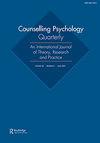The good, the bad, and the less than ideal in clinical supervision: a qualitative meta-analysis of supervisee experiences
IF 1.5
Q3 PSYCHOLOGY, APPLIED
引用次数: 6
Abstract
ABSTRACT . With qualitative studies increasingly published on different aspects of supervision, this qualitative meta-analysis synthesized existing qualitative research and explored what aspects therapy trainees find helpful and unhelpful in individual supervision. A sample of 29 studies (755 participants) was selected by conducting a systematic literature search and a critical appraisal process to ensure a suitable level of methodological rigor. Data analysis followed a descriptive and interpretative framework. Results yielded 6 main meta-categories: three in the helpful aspects domain (i) Supervisor establishes a secure learning environment, (ii) Supervisor demonstrates ability to facilitate learning, and (iii) Supervisor demonstrates willingness and ability to acknowledge and negotiate differences; and three in the unhelpful aspects domain (i) Supervisor demonstrates behaviour that lacks sensitivity, accountability, and ethical consideration, (ii) Supervisor fails to create a safe and supportive environment, and (iii) Supervisor demonstrates limitations in the appropriate maintenance and sharing of knowledge and skills. Influenced by the quality of the supervisory alliance, supervision can be helpful, but it may also be experienced as unhelpful and potentially harmful. Issues of power and diversity need to be negotiated in a manner that maintains ethical and professional standards of practice and care. Implications for supervision training, practice, and research are discussed.临床监督中的好、坏和不太理想:被监管者经验的定性荟萃分析
摘要:随着对不同监管方面的定性研究越来越多,本定性荟萃分析综合了现有的定性研究,探讨了治疗学员在个体监管中哪些方面是有益的,哪些方面是无益的。通过系统的文献检索和严格的评估过程,选择了29项研究(755名参与者)的样本,以确保方法的严谨性达到合适的水平。数据分析遵循描述性和解释性框架。结果产生了6个主要的元类别:三个在有益方面领域(i)主管建立了一个安全的学习环境,(ii)主管展示了促进学习的能力,(iii)主管展示了承认和协商差异的意愿和能力;三个是无益方面(i)主管表现出缺乏敏感性、问责性和道德考虑的行为,(ii)主管未能创造一个安全和支持性的环境,以及(iii)主管在适当维护和分享知识和技能方面表现出局限性。受监管联盟质量的影响,监管可能是有益的,但也可能是无益的,甚至可能是有害的。权力和多样性的问题需要以一种保持道德和专业标准的方式进行谈判。讨论了监督培训、实践和研究的意义。
本文章由计算机程序翻译,如有差异,请以英文原文为准。
求助全文
约1分钟内获得全文
求助全文
来源期刊

Counselling Psychology Quarterly
PSYCHOLOGY, APPLIED-
CiteScore
6.20
自引率
6.70%
发文量
30
期刊介绍:
Counselling Psychology Quarterly is an international interdisciplinary journal, reporting on practice, research and theory. The journal is particularly keen to encourage and publish papers which will be of immediate practical relevance to counselling, clinical, occupational, health and medical psychologists throughout the world. Original, independently refereed contributions will be included on practice, research and theory - and especially articles which integrate these three areas - from whatever methodological or theoretical standpoint. The journal will also include international peer review commentaries on major issues.
 求助内容:
求助内容: 应助结果提醒方式:
应助结果提醒方式:


